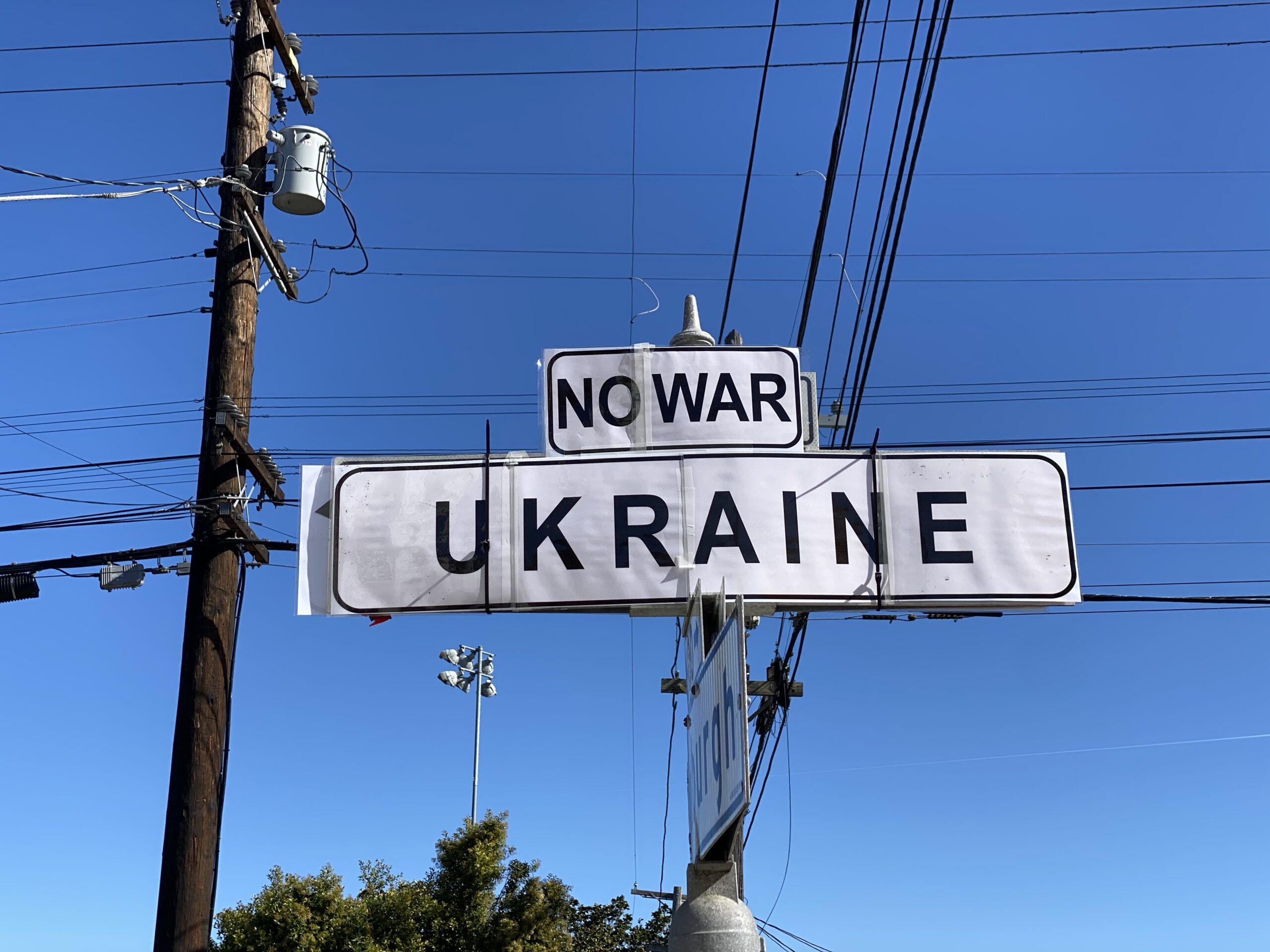In a sign of solidarity with the beleaguered Eastern European nation, some prankster who’s no fan of Vladimir Putin covered up several street signs along Russia Avenue in the Excelsior, relabeling them “Ukraine” Avenue in a reasonable facsimile of the Fog City Gothic font (with “NO WAR” concealing the address numbers above). As of Wednesday, at least one remains zip-tied to the pole on both sides of the sign.
Nearby Moscow Street has not been changed to Kyiv Street, however. Nor does there seem to be a groundswell of energy to rename Russian Hill or the Russian River. When an Excelsior resident shared an image of Ukraine Avenue on Twitter, people disagreed as to whether this constituted an impish form of activism or useless virtue-signaling, but most commenters seemed amused.
The anonymous renamer is part of a long civic tradition of guerrilla nomenclature, from the pointed (changing Bush Street to “Obama Street” around the inauguration of the first Black President) to the gastronomic (dead-end Burritt Street, just off of Bush, has been “Burritto Street”) to the merry (Noe Street becomes “Noel Street” in December, complete with red-and-white ribbon).
Of course, San Francisco has a long history of officially renaming streets for causes or figures deemed worthy, as in the case of Cesar Chavez Street (formerly Army) or the section of Polk Street immediately adjacent to City Hall that has been Dr. Carlton B. Goodlett Place, giving a crusading newspaper publisher and Civil Rights activist the imprimatur of city stationery.
There’s another facet of righting historical wrongs. Take Frida Kahlo Way. Bisecting City College’s campus, it had long been Phelan Avenue, after a wealthy Gold Rush-era figure—but by 2018, the community found the xenophobic, anti-Asian politics of his son, a United States senator, distasteful.
Sometimes, it’s even more complicated, as with the one-block section of Ivy Street in Civic Center that was initially renamed for Polish labor hero and Nobel laureate Lech Walesa. After Walesa made remarks about Polish lawmakers that were widely interpreted as antigay, San Francisco reconsecrated the alley as Dr. Tom Waddell Place, in honor of the founder of the Gay Games who had a medical practice on the block.
Although at least one Polish queer activist protested, that change felt in keeping with the progressive values of a city with a substantial LGBTQ+ population.
Some SF street names have been renamed for less honorable reasons, however. Italy, France, and Brazil avenues run parallel to Russia-slash-Ukraine Avenue in the same sequence of east-west streets in the Excelsior. A century ago, anti-Asian fervor spurred the city to replace Japan, China, and India avenues with Avalon, Excelsior, and Peru.
Whether the changes are sanctioned or not, cities around the world have taken a stand against Russian belligerence by changing up the urban landscape. The thoroughfare in Albania’s capital city where both the Ukrainian and Russian embassies are found is now “Free Ukraine Street.” In Oslo, the Russian embassy’s address is now “Ukraine Square.” And in Washington, a group called Mad Dog reconfigured a section of Wisconsin Avenue as “Zelensky” (sic) Street, trolling the Russian embassy there with an homage to Ukraine’s president. They left out the second “y,” but then again, Ukrainian is written in Cyrillic.
